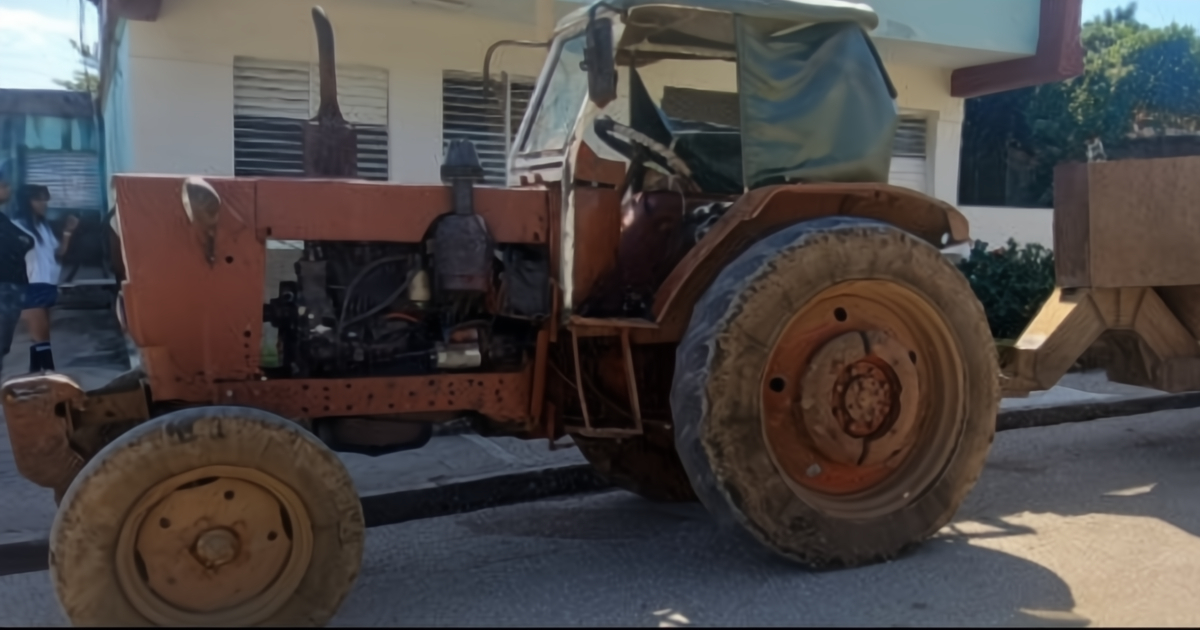
Related videos:
During an operation carried out in the town of Arroyo Rico, in the municipality of II Frente, forces from the Revolutionary National Police (PNR) detained a man who was transporting more than 30 sacks of semi-clean coffee in a tractor.
The regime's spokesperson profile "Heroes of the Moncada" on Facebook indicated that the coffee was intended for the informal market, a practice that, instead of decreasing, has intensified in recent years.
Additionally, the publication emphasized that the transfer of the coffee sacks was carried out without any documentation proving the legality of the product.
The proliferation of illicit coffee trade in Cuba is not an isolated phenomenon, but a direct consequence of the crisis facing the country.
While the "Hola" coffee, sold through the ration book, is a blend of coffee and peas that few consider drinkable, pure coffee has become an unattainable luxury for most.
This context has fueled a black market where higher quality coffee is sold at exorbitant prices, feeding a parallel economy that authorities are trying to control with little success.
The fight against the illegal coffee trade is portrayed by the regime as a measure to protect national resources, but for many Cubans, these operations only reflect a system incapable of meeting the basic needs of its population.
In a country that has historically produced coffee, the scarcity of this product symbolizes economic decline and the government's inability to manage essential resources.
While the State continues with operations like this, the underlying issue, rooted in scarcity and lack of alternatives, remains unresolved.
In the midst of food shortages and basic goods in Santiago de Cuba, a Catholic priest has shared a traditional coffee alternative, known as "the coffee for the poor," made with platanillo seeds.
The parish priest Leandro Naun Hung, who works to empower rural communities in Santiago de Cuba in the face of the current economic crisis, shared on Facebook a little-known tradition for many, but common in the region due to the scarcity of conventional coffee.
Frequently Asked Questions about the Seizure of Coffee and the Situation of the Informal Market in Cuba
Why was a man arrested in Santiago de Cuba for transporting coffee?
The man was arrested for transporting more than 30 bags of semi-clean coffee without the necessary documentation to verify the legality of his load, indicating that it was intended for the informal market, a practice that is becoming increasingly common due to the economic crisis in Cuba.
How has the informal coffee market evolved in Cuba?
The informal coffee market in Cuba has grown significantly due to the scarcity of basic products and the low quality of coffee distributed officially. Pure coffee has become a luxury and is in high demand on the black market, where it is sold at exorbitant prices.
What alternatives do Cubans have in the face of coffee shortages?
Amid the coffee shortage, some Cubans have resorted to alternatives such as "poor people's coffee," made from banana seeds. This substitute is a testament to the creativity and resilience of communities in the face of the crisis, although it does not replace the flavor or quality of authentic coffee.
What measures is the Cuban regime taking against the black market for coffee?
The Cuban regime has intensified operations to confiscate coffee and other products in the black market as part of a crackdown on illegal activities. However, these measures do not address the underlying causes of the scarcity, such as the lack of adequate production and distribution.
Filed under: